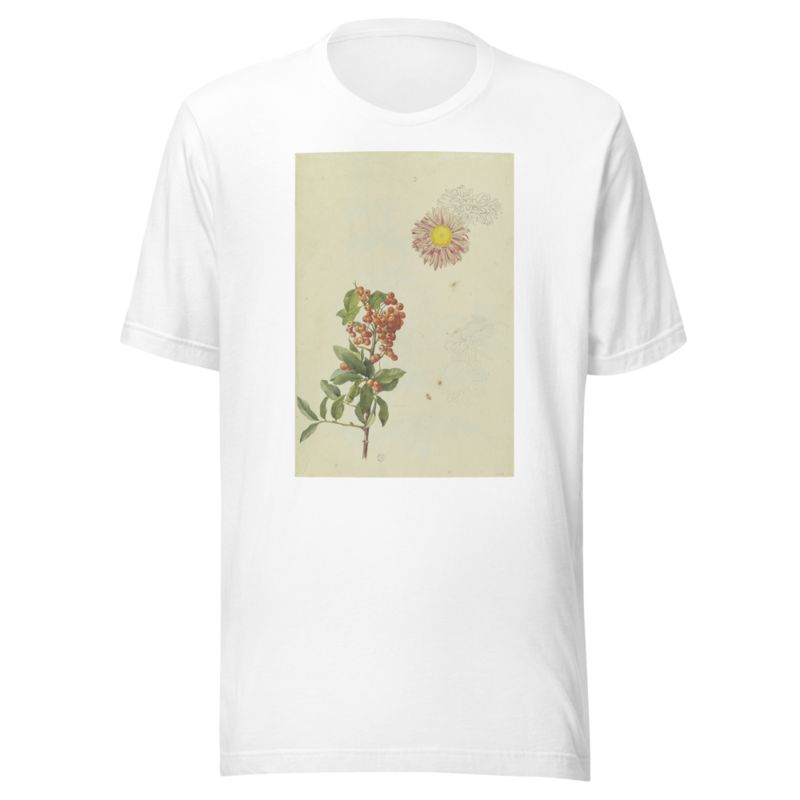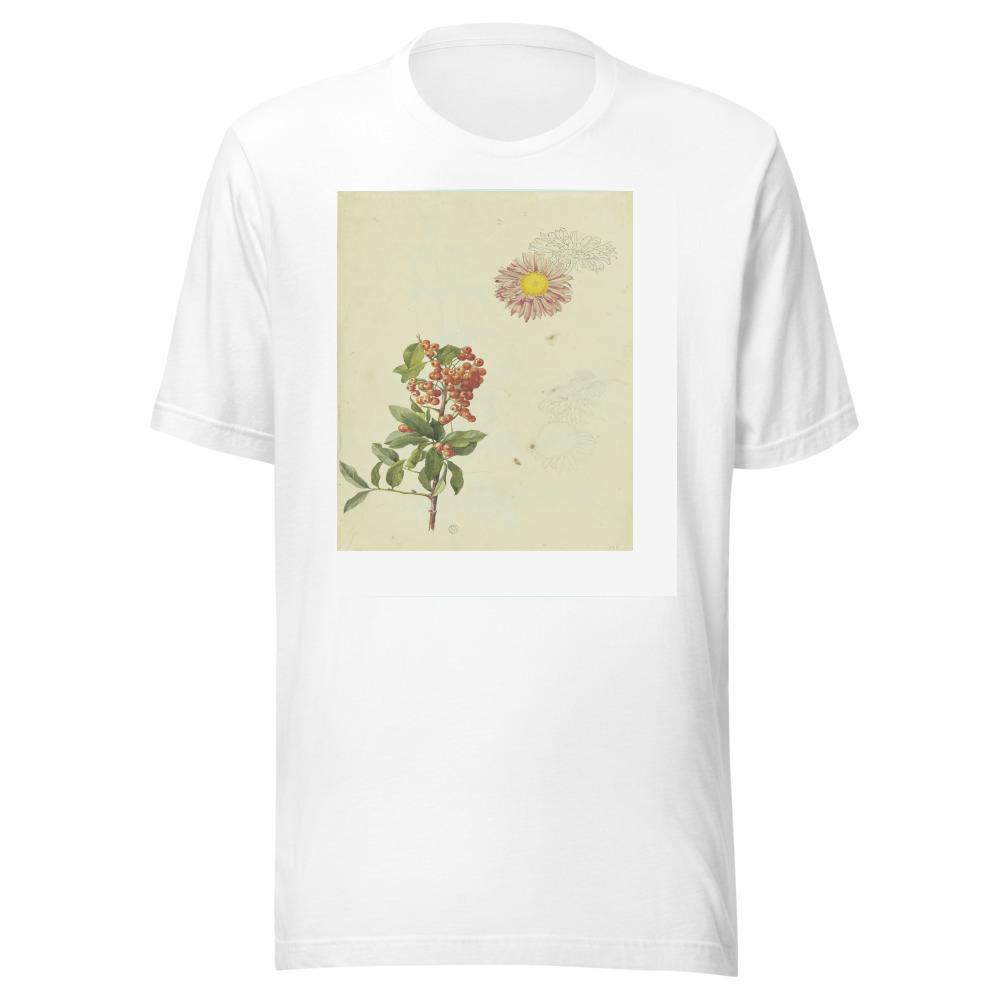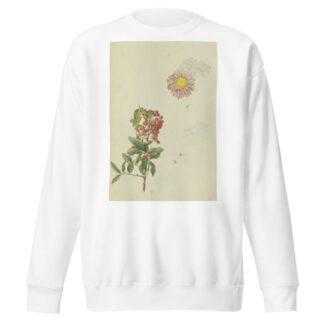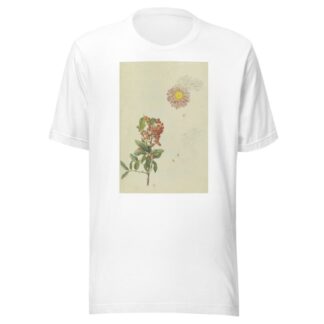Description
Firethorn and Chrysanthemum by Franz Theobald Horny printed on a T-Shirt
About the T-Shirt
Regular fit
Standard length, the fabric easily gives into movement
Casual wear
A classic, everyday option loved by our customers
Side-seamed
Constructed by sewing two parts together, creating a fitted look
The Unisex Staple T-Shirt feels soft and light with just the right amount of stretch. It’s comfortable and flattering for all. We can’t compliment this shirt enough–it’s one of our crowd favorites, and it’s sure to be your next favorite too!
- Solid colors are 100% Airlume combed and ring-spun cotton
- Ash color is 99% combed and ring-spun cotton, 1% polyester
- Heather colors are 52% combed and ring-spun cotton, 48% polyester
- Athletic and Black Heather are 90% combed and ring-spun cotton, 10% polyester
- Heather Prism colors are 99% combed and ring-spun cotton, 1% polyester
- Fabric weight: 4.2 oz./yd.² (142 g/m²)
- Pre-shrunk fabric
- 30 singles
- Side-seamed construction
- Tear-away label
- Shoulder-to-shoulder taping
- Blank product sourced from Nicaragua, Mexico, Honduras, or the US
Franz Theobald Horny (1798-1824)
Franz Theobald Horny was a German painter in the Romantic style.
He attended the Weimar Princely Free Drawing School, where he studied under Johann Heinrich Meyer, Goethe’s advisor on artistic matters. His father, the engraver Konrad Horny, was also a teacher there. A decisive turn in his career came when he met the art historian, collector and patron Carl Friedrich von Rumohr, who took him along on a trip to Rome and helped to place him as a student in the workshop of Joseph Anton Koch.
He remained there until 1817, torn between his German-Romantic upbringing on one hand and the influences of the Nazarene movement on the other. He accompanied Rumohr on trips to Olevano and Frascati. On one of these trips, he met Peter von Cornelius who used his connections to obtain work for Horny, painting frescoes at the “Casino Massimo” (now known as the Villa Giustiniani Massimo [it]), owned by the princely Massimo family.
Upon his return to Germany, he worked primarily as a landscape painter. Shortly thereafter, he was diagnosed with tuberculosis. As his illness worsened, he went back to Italy in hopes that the climate would be more amenable, and settled in Olevano in 1822. His disease worsened, however and, after much suffering, he died there. He was buried in the local cemetery.






Reviews
There are no reviews yet.